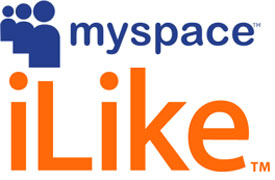This past weekend i watched this video from Fred Wilson about what are the 10 Golden Principles of a Web application. Fred has been an investor for over 20 years and is on the board of some of this decade’s premier companies such as Twitter, FourSquare, Tumblr, Etsy, Delicous, and more.
The 10 Golden Principles of Successful Web Apps from Carsonified on Vimeo.
- Speed. Fred sees speed more than a feature. Speed is the most important feature and he argues that this is more important with mainstream users an early-adopters who are more forgiving. Everyday users have no tolerance for slugish apps. I heard the same thing from Google when they presented at Techstars. They measure everything and if it’s slow, they fix it. Fred mentioned pingom as something they use to measure every portfolio company.
- Instant Utility. If a user has to spend too long to configure the service – it won’t catch on. YouTube is a great example of how it won by providing instant feedback rather than delaying the gratification.
- Voice. Consumer software is media today. Consumers approach in the same way the approach magazines, tv shows, etc.. Software has to have a personality and if it has no attitude, then it won’t catch on.
- Simplicity. Just one main feature at launch. Fred points to Delicious as a perfect example of this. Make the app super simple and then go from there. There are lots of good posts on how to focus on this.
- Programmability. Make your app accessible from other developers. This means read+write API’s and if’s not “write” it’s not an API and might as well be RSS. Allow other developers to add energy, data and richness. In Fred’s mind this is absolutely essential and he’s hesitant to invest in anything that isn’t programmable.
- Personalizable. You want make your app infused with your user’s energy.
- REST URLs. Make your app easy to navigate – give everything a URL. This also makes is discoverable from Google.
- Discoverable. There are millions of web pages and web applications. This point means SEO but it also means that your app itself should be self-promoting. This means social media and branding.
- Clean. This is UI requirement. You need to be able to come to the page and be able to immediately determine what to do and what’s going on. It has to be inviting and simple.
- Playful. An app should be fun to use and it’s use should encourage future use. Weigh Watchers is a good example as it establishes points and goals and getting the points and acheiving goals is something that should be embedded in each application
There one more interesting point he spits out at the end about the name and brand of a company. He talks about how important it is to him that the company purchases the actual name of the company. For example, Foursquare was playfoursquare.com and they insisted that they change. He also insisted that del.icio.us become delicious.com.
The 10 principles are interesting to think about and a good checklist for any startup to have. I’ve definitely been guilty of ignoring some of these in my past work. Interesting stuff
 iLIke
iLIke 
![Reblog this post [with Zemanta]](http://img.zemanta.com/reblog_e.png?x-id=fd030fbf-0999-4bfa-ada6-a93003704cda)



![Reblog this post [with Zemanta]](http://img.zemanta.com/reblog_e.png?x-id=37084c54-cbc2-4a30-a30a-e4036e6179b0)

![Reblog this post [with Zemanta]](http://img.zemanta.com/reblog_e.png?x-id=d31770bc-5bf3-4fed-87a7-d0c66d46974e)


![Reblog this post [with Zemanta]](http://img.zemanta.com/reblog_e.png?x-id=a1e76c5d-54c6-4a58-9b34-6fef16642dcc)

![Reblog this post [with Zemanta]](http://img.zemanta.com/reblog_e.png?x-id=1689b027-60e6-4231-b5ce-acaa84335226)

![Reblog this post [with Zemanta]](http://img.zemanta.com/reblog_e.png?x-id=20118aad-87c2-49d8-827b-c6f09eab0c5a)

![Reblog this post [with Zemanta]](http://img.zemanta.com/reblog_e.png?x-id=74cb3ccd-629d-4019-9521-11eff1edf554)